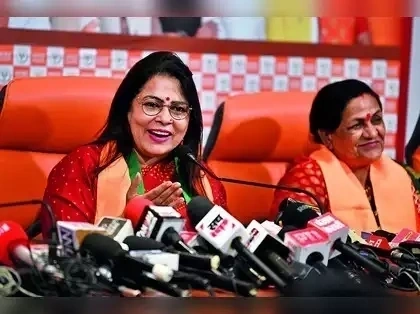In recent years, Delhi has witnessed a series of demolition drives targeting unauthorized constructions. These operations, often executed using bulldozers, have ignited a contentious debate: Are these actions legitimate law enforcement measures, or do they disproportionately target minority communities, particularly Muslims?

The Emergence of 'Bulldozer Justice'
The term "bulldozer justice" has gained prominence to describe the swift demolition of properties linked to individuals accused of crimes or involved in communal clashes. Proponents argue that these demolitions serve as immediate punitive measures against illegal encroachments and deter future unlawful activities. However, critics contend that such actions bypass due legal processes and selectively target marginalized groups.
Notable Incidents in Delhi
A significant instance occurred in April 2022 in Delhi's Jahangirpuri area. Following communal clashes during a religious procession, the North Delhi Municipal Corporation initiated a demolition drive, citing the removal of illegal encroachments. Despite a Supreme Court order to maintain the status quo, demolitions continued temporarily, affecting numerous shops and residences, many owned by Muslims.
Legal and Human Rights Concerns
These demolition drives have raised alarms among legal experts and human rights organizations. Amnesty International criticized the demolitions as "unlawful," emphasizing that such actions without due process violate fundamental human rights.
In November 2024, India's Supreme Court addressed these concerns, criticizing state authorities for arbitrary demolitions and issuing guidelines to ensure due process. The court mandated prior notices and proper documentation before any demolition, underscoring that authorities cannot act arbitrarily against individuals without following legal procedures.

Perspectives from Affected Communities
Members of the Muslim community, who have been disproportionately affected by these demolitions, have expressed feelings of victimization. Many view these actions as collective punishment, especially when demolitions occur without prior notice or legal recourse. The aftermath often leaves families homeless, and businesses destroyed, exacerbating socio-economic vulnerabilities. (Source: aljazeera.com)
Government and Law Enforcement's Stance
Authorities justify demolition drives as necessary actions against illegal encroachments and to maintain public order. They argue that these measures are impartial and based solely on legal violations, irrespective of the owner's community or background. However, the timing and selective targeting of specific neighborhoods have led many to question these assertions.

Societal Impact
The practice of "bulldozer justice" carries significant repercussions:
- Erosion of Legal Norms: Bypassing established legal procedures undermines the rule of law, setting a precedent where authorities might exercise unchecked powers.
- Communal Polarization: Perceived targeting of specific communities can deepen societal divides, fostering mistrust between minority groups and the state.
- Humanitarian Concerns: Sudden demolitions displace families, disrupt livelihoods, and exacerbate poverty, leading to long-term socio-economic challenges.
- International Image: Such actions can tarnish India's global reputation as a democratic nation committed to human rights and equality.
While addressing illegal constructions and maintaining public order are legitimate governmental functions, ensuring that actions align with constitutional principles and human rights is crucial. The debate over "bulldozer justice" in Delhi underscores the delicate balance between enforcing the law and protecting citizens' rights. As the discourse continues, adherence to due process and impartiality remains paramount to uphold the integrity of India's democratic framework.
#DelhiDemolitions #BulldozerJustice #SocialJustice #CommunityRights #UrbanPolicy













This incident in Delhi raises so many questions about the true intentions of the law enforcement and how it affects the already marginalized minority community.